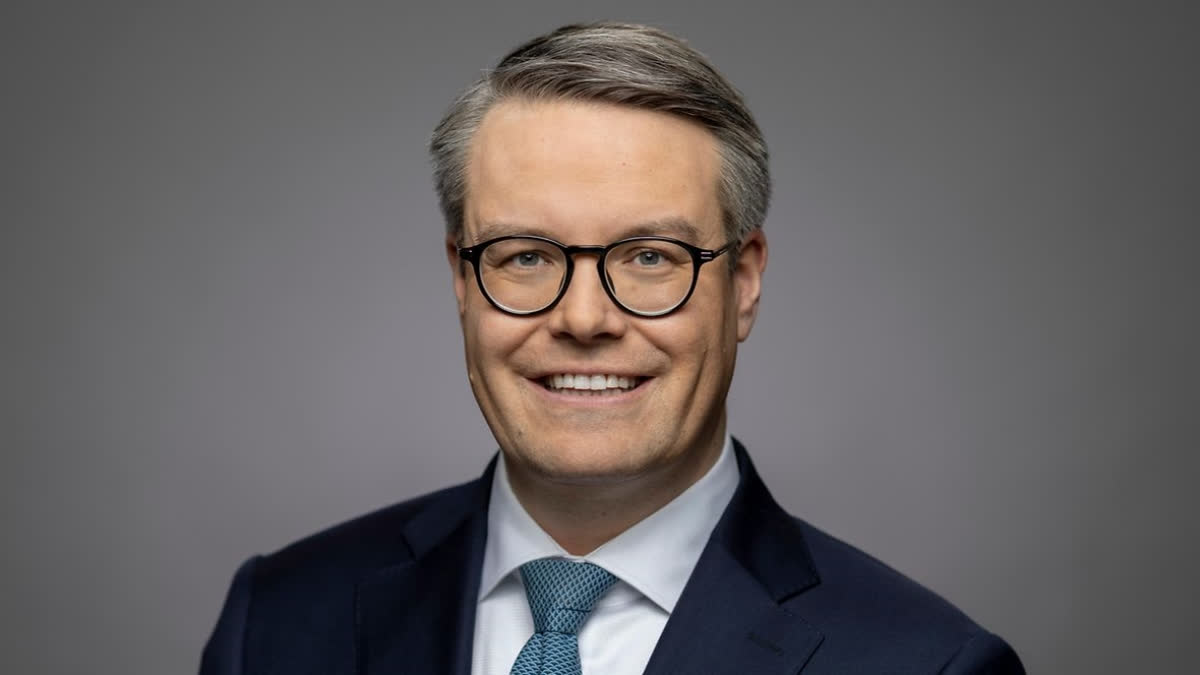New Delhi: Tobias Linder, German Minister of State on Wednesday said that the Indo-Pacific region is a true global economic heavyweight that generates 60 per cent of global GDP and two-thirds of global growth. However, stability and prosperity in the Indo-Pacific are inseparably linked with Europe and the world, he added.
His statement comes as he visits New Delhi from February 20 to 22 to take part in the Raisina Dialogue, one of the world’s principal conferences on security policy.
He further noted that regional and local conflicts also have global ramifications, including economic crises and other vastly further-reaching impacts, pressurising the rules-based international order. "That is why Germany continues to expand its engagement in the Indo-Pacific region – a process it began before the Russian war of aggression in Ukraine", he added.
At the Raisina Dialogue, the German State Minister will hold talks with many of the partners including India about how Germany and Europe can contribute to maintaining peace, security and reduce tensions in the Indo-Pacific.
On the sidelines, Lindner will also meet interlocutors including the Foreign Minister of Bhutan, a senior member of the Indian Ministry of External Affairs, and German business representatives in India. The Raisina Dialogue is India’s flagship conference on geopolitics and geo-economics, committed to addressing the most challenging issues being faced by the international community.
The 9th Raisina Dialogue will witness the participation of representatives from over 100 countries including Ministers, former Heads of State and Heads of Government, Military Commanders, Captains of Industry, Technology Leaders, Academics, Journalists, Scholars on Strategic Affairs, Experts from leading Think Tanks, and Youth.
The theme of the 2024 edition is "Chaturanga: Conflict, Contest, Cooperate, Create”. Over a span of three days, decision-makers and leaders of the world will engage with each other in various formats, over six thematic pillars including Tech Frontiers: Regulations & Realities; Peace with the Planet: Invest and Innovate; War and Peace: Armouries and Asymmetries; Decolonising Multilateralism: Institutions and Inclusion; the Post 2030 Agenda: People and Progress; and Defending Democracy: Society & Sovereignty.
Over 2,500 participants from about 115 countries will be joining the Dialogue in person, and the proceedings will be viewed by millions across the world on various digital platforms.
Read More:



